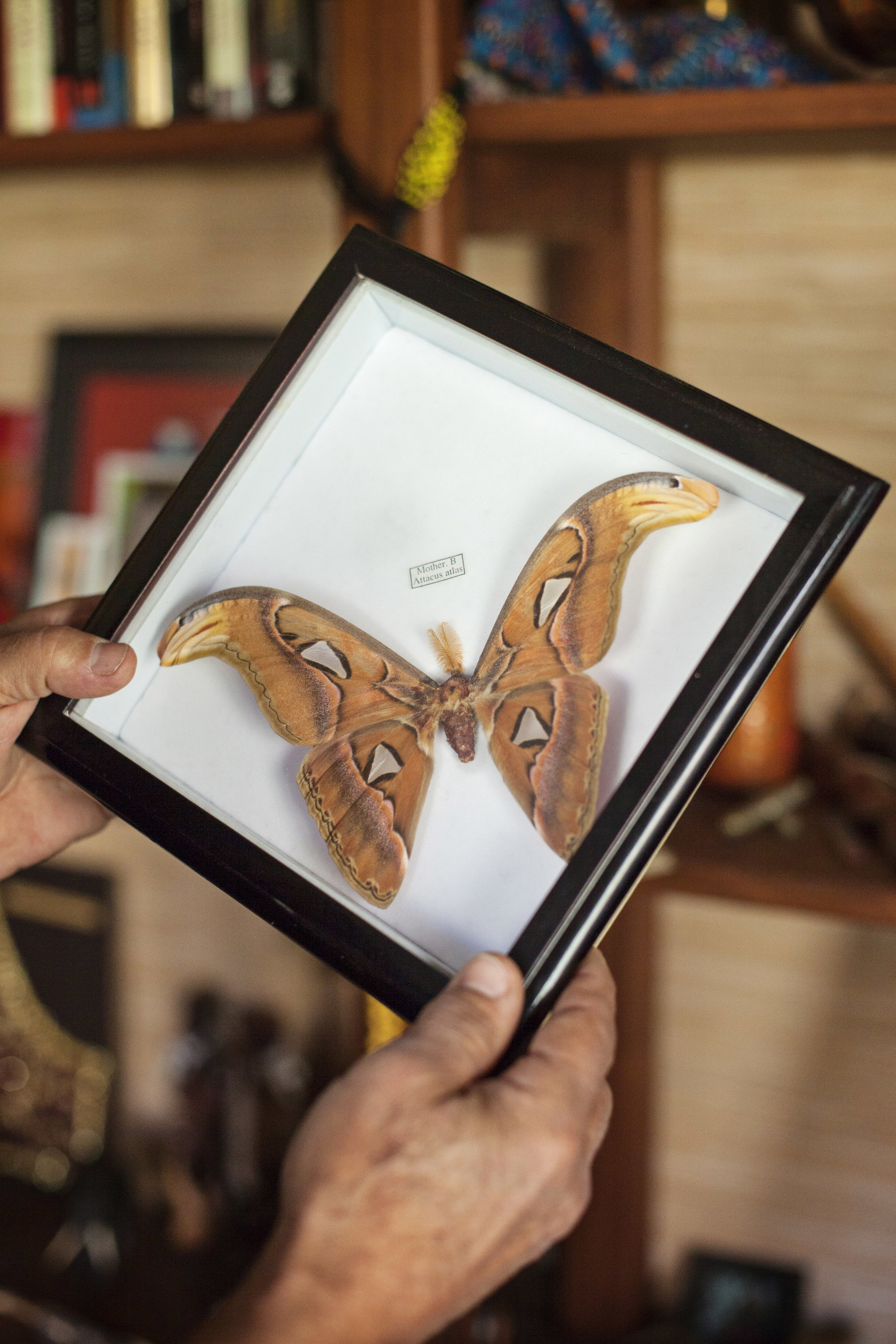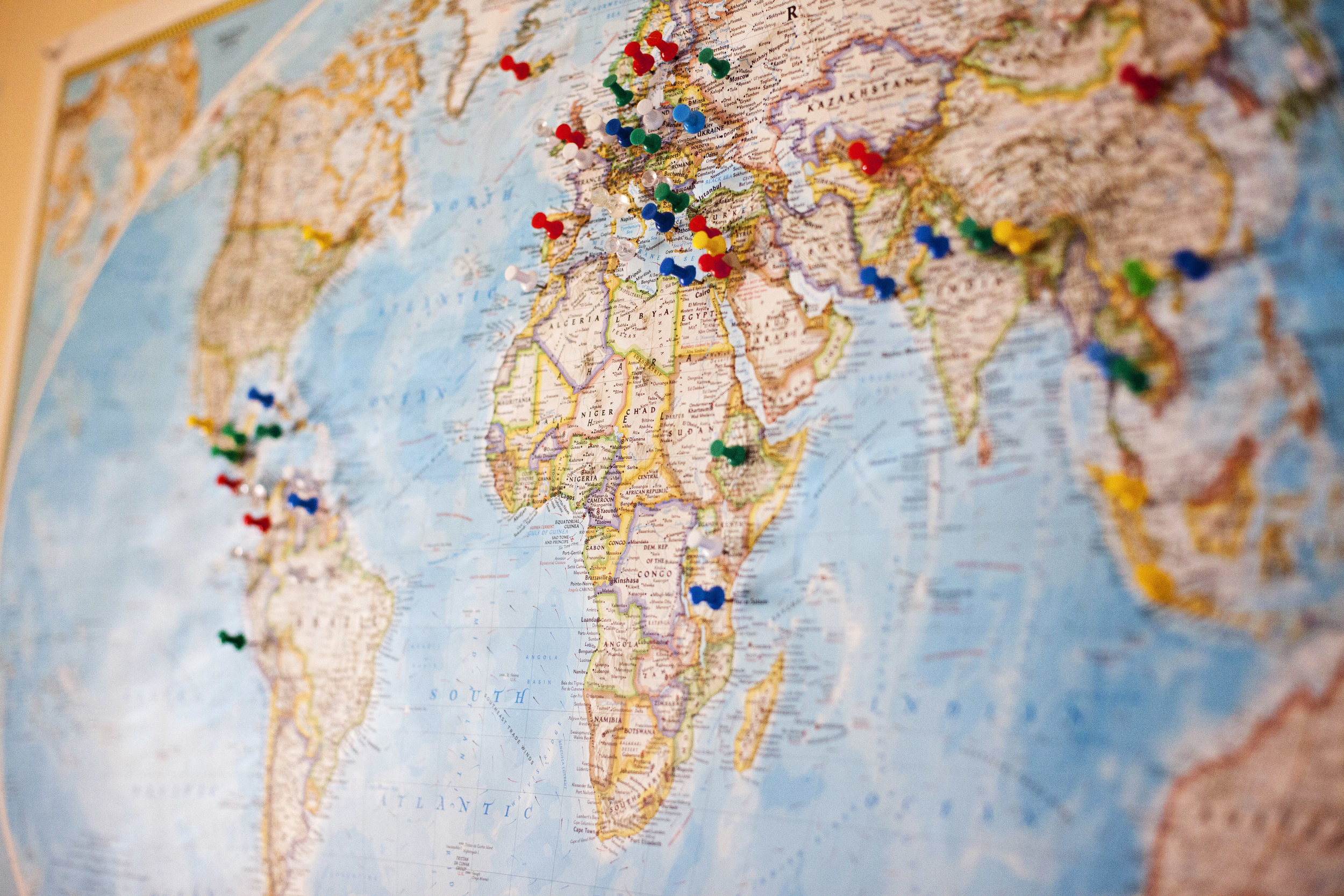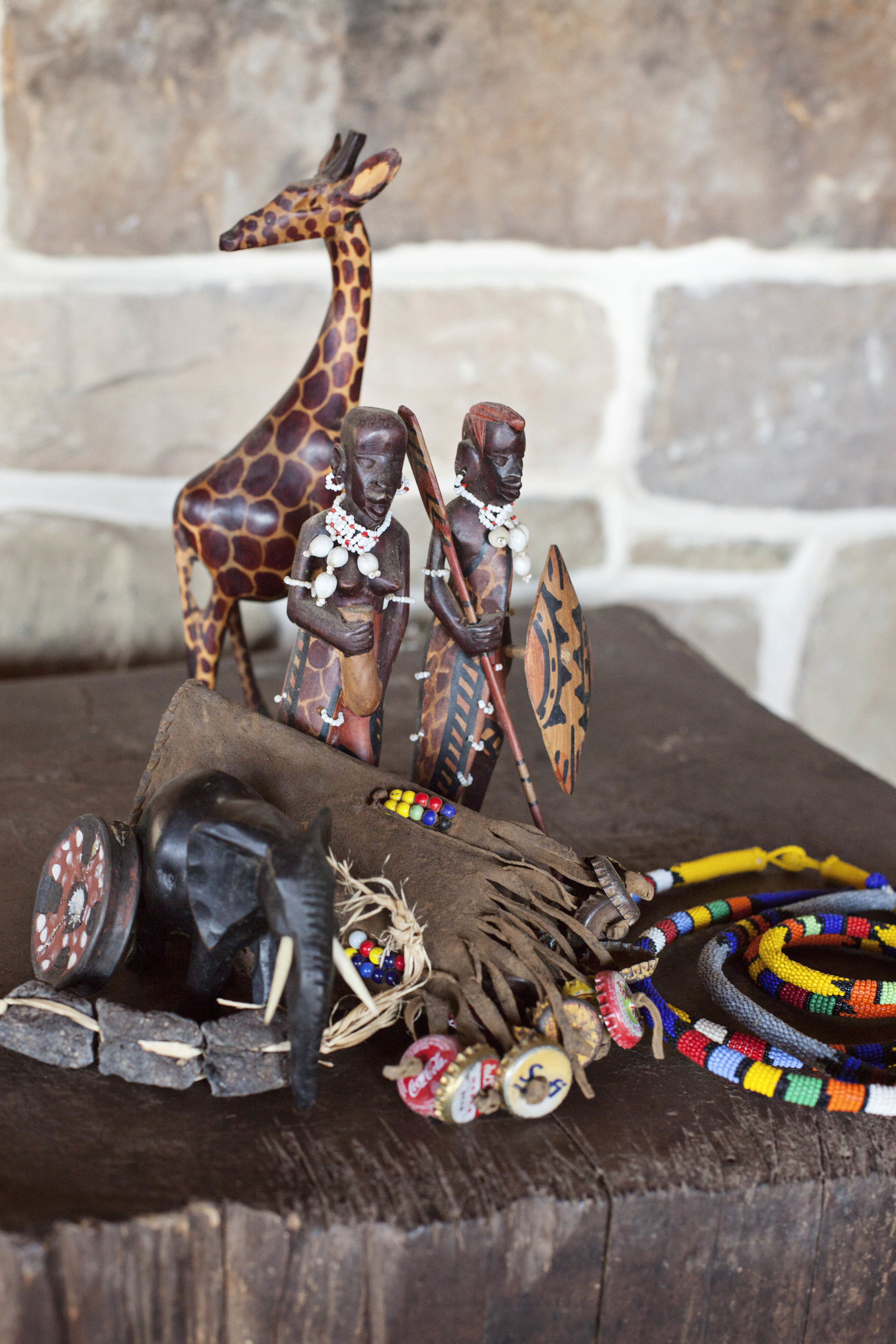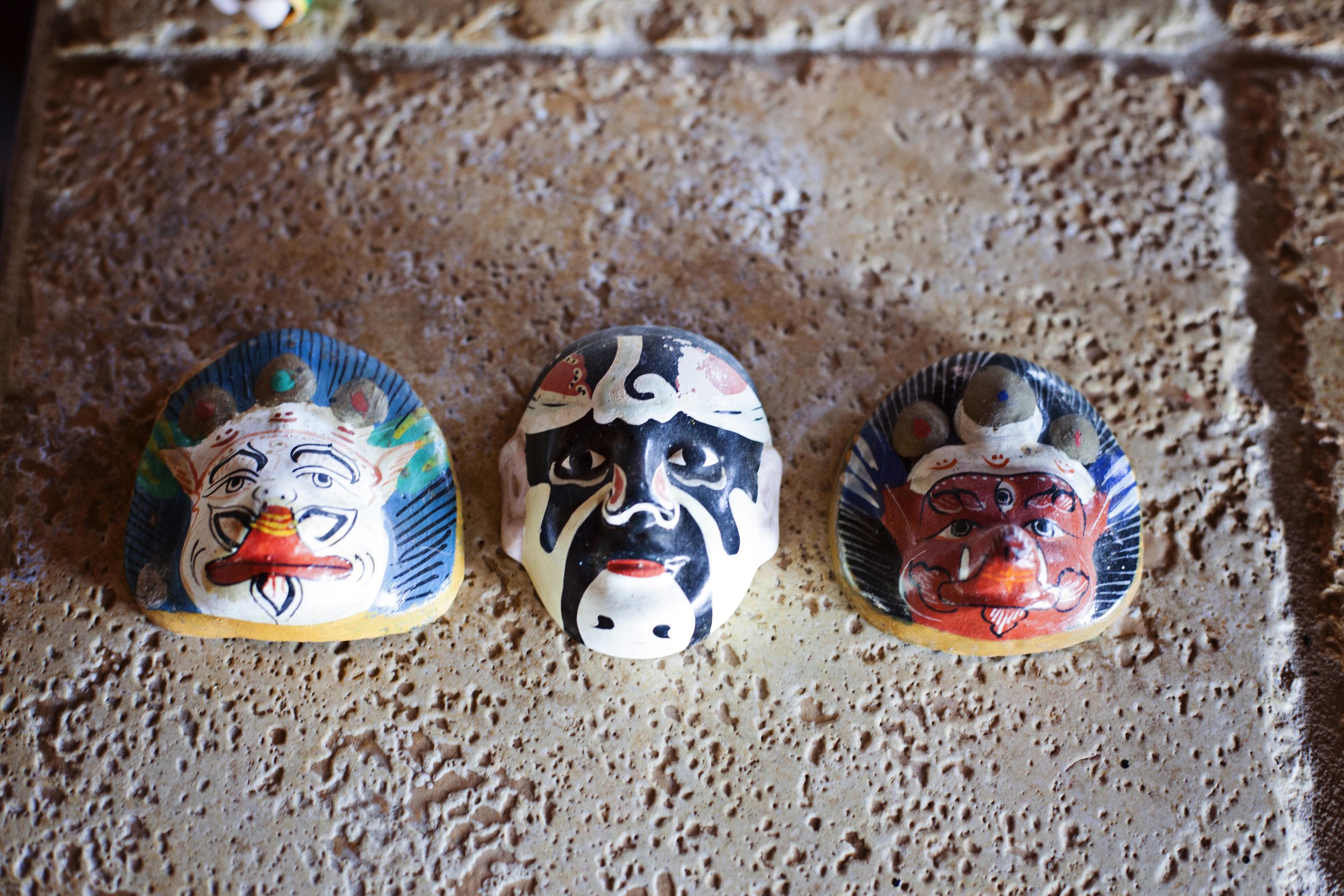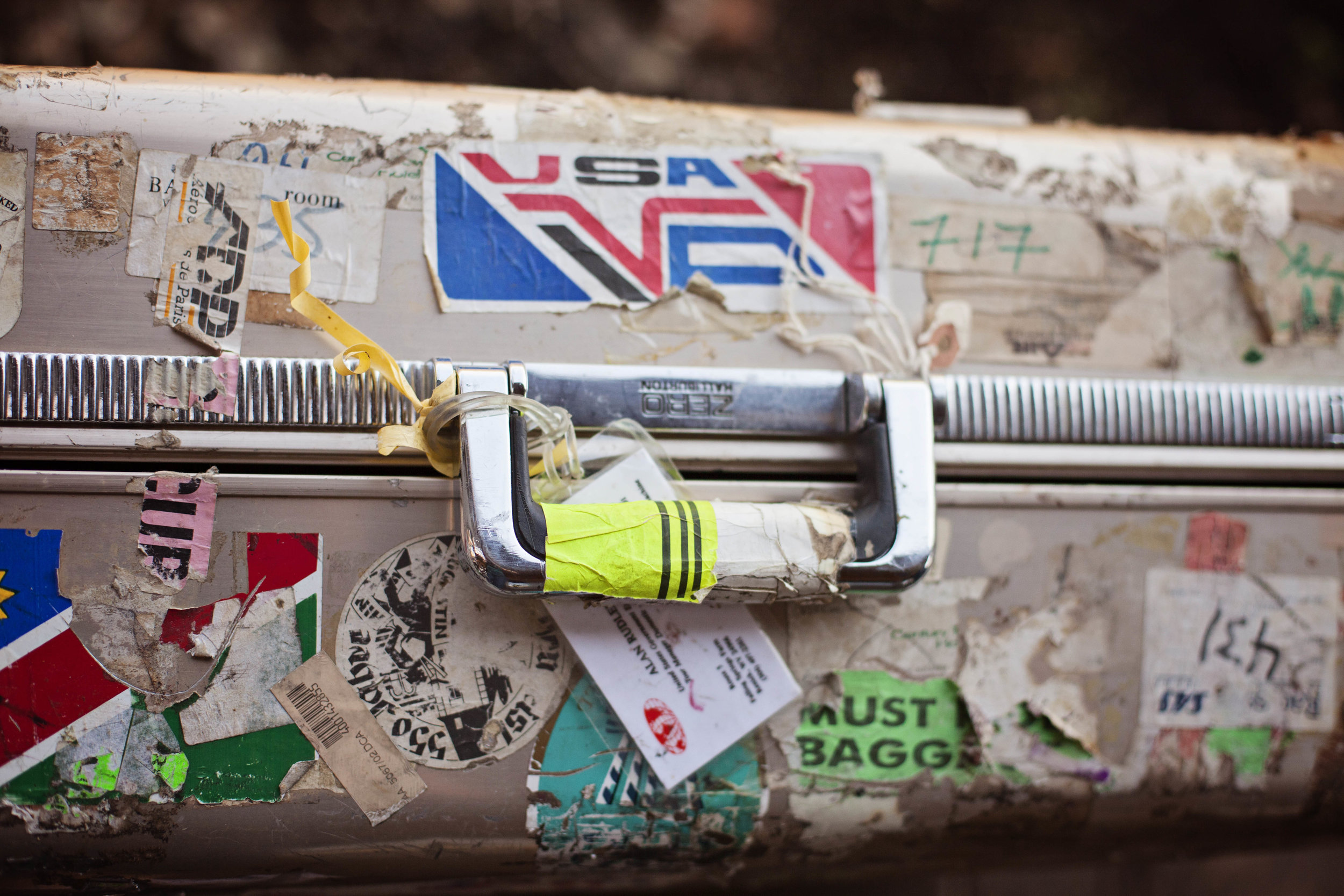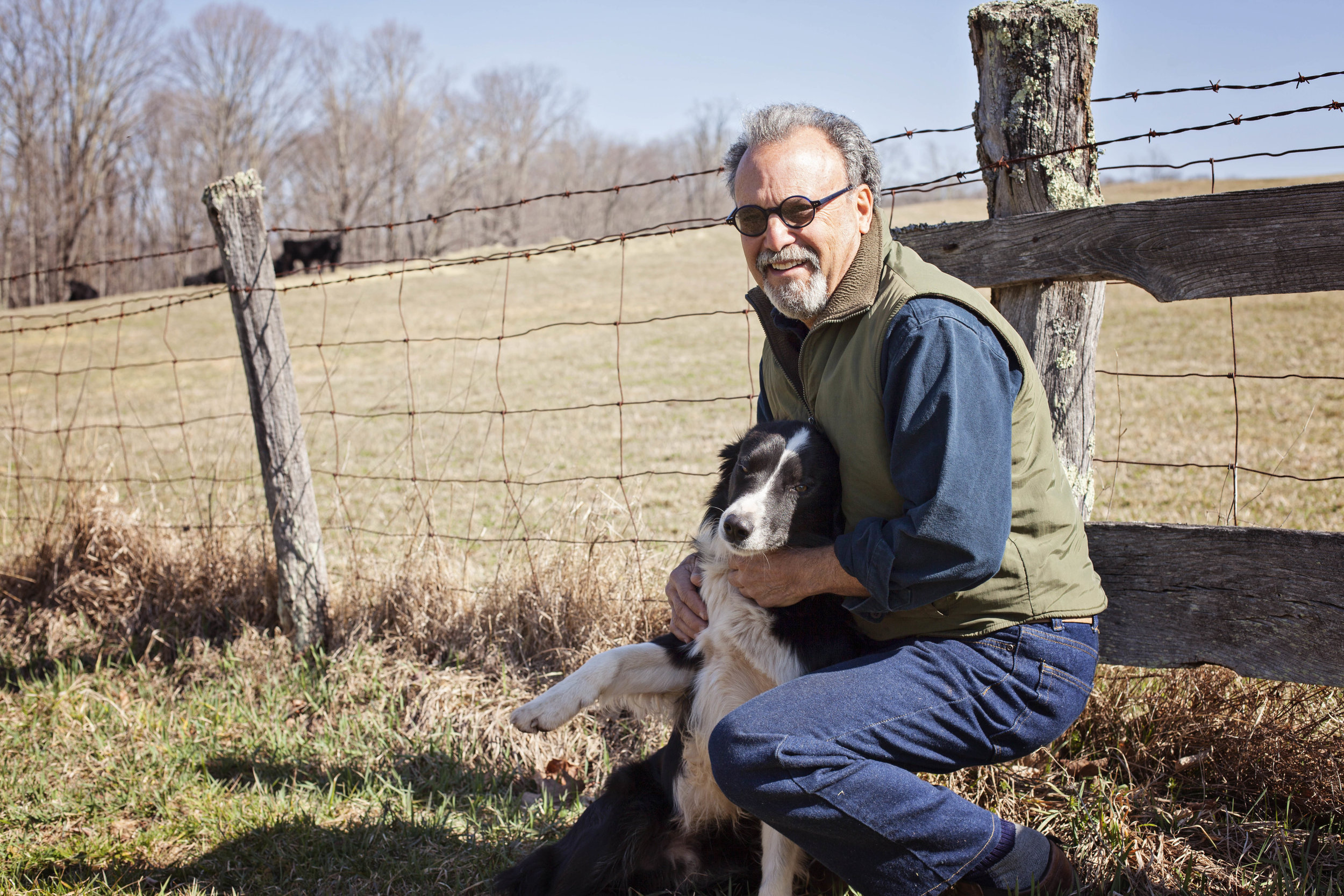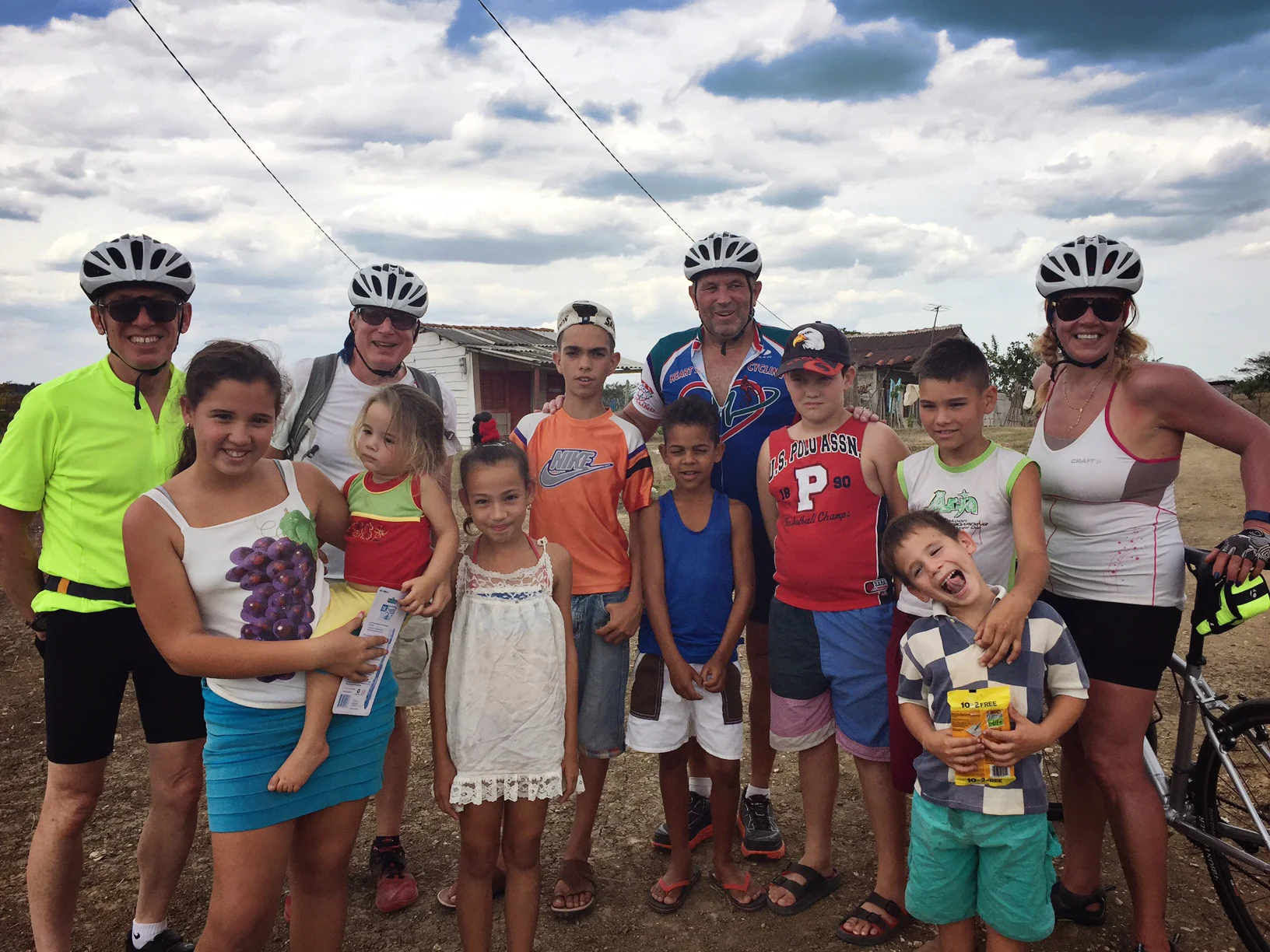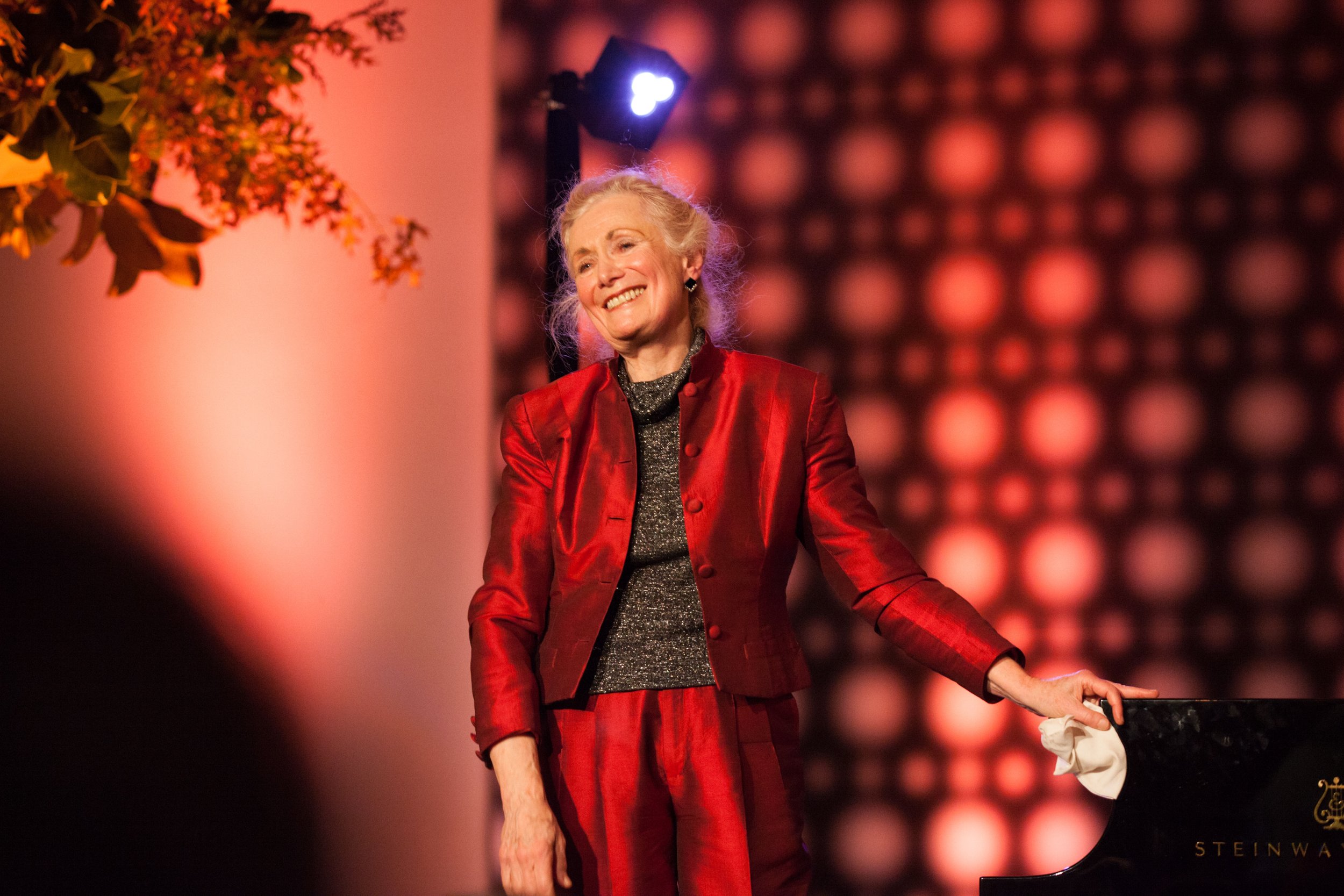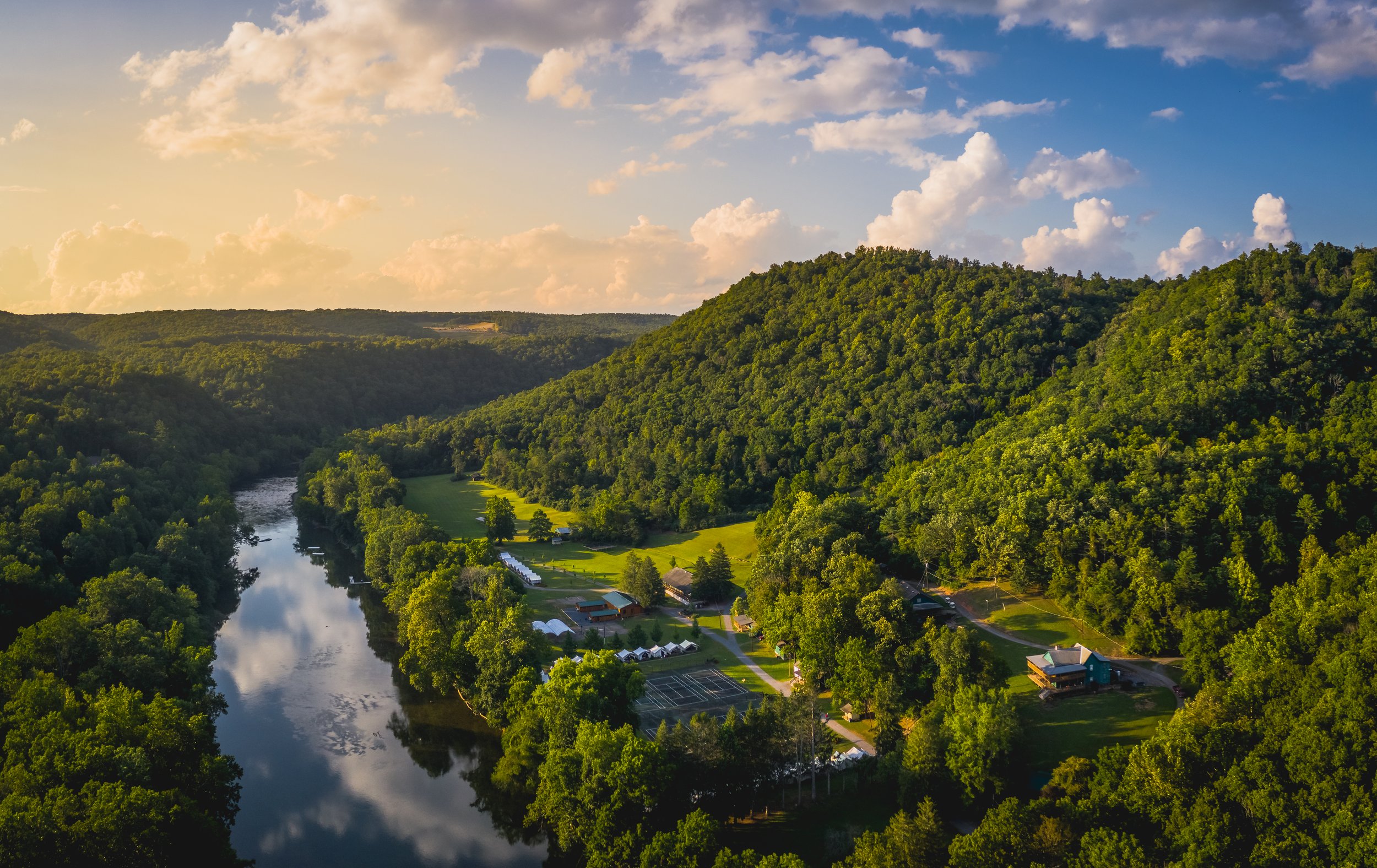Home and Away

One look at Alan Rudley’s suitcase is all it takes to know that the man gets around. He has been to every state and 56 foreign countries, and he’s still traveling. He didn’t set out to become a professional nomad when he moved to Greenbrier County in the early 1970s. But chance landed him in a career that has introduced him to people from all but five countries around the globe, placed him in proximity to current and future world leaders, and given him a profound understanding of what it means to be an American.
Rudley moved to Greenbrier County as one of the young back-to-the-landers whose goal was to farm a few acres and live simply. Although he had grown up in Philadelphia, his interest in farming was fueled by visits to his grandfather’s blueberry farm in central New Jersey. He found affordable land, and after first locating in the Spring Creek area, he eventually purchased 260 acres atop Chestnut Ridge in northern Greenbrier County. There, he established Falling Springs Farm and began raising sheep and cattle. The sheep soon went by the wayside, but he still maintains a small herd of cattle.
When he first bought the property, there was no house on it. One of his friends had dismantled and reassembled an old log cabin that was about to be burned down, and Rudley was inspired to find a similar cabin to relocate to the farm. He located a mid-nineteenth century log cabin in the Sam Black area of Greenbrier County, hauled it up the mountain, and proceeded to fix it up, chinking the logs and rebuilding the fireplace. Only in recent years has he built a newer, more energy-efficient home.
“I spent the first winter up there not knowing how to do wood. My neighbor, Bob Blankenship, taught me the trees and how to use a chainsaw. We are still good friends. He just had his 89th birthday,” Rudley said.
Rudley had been doing government survey work in Philadelphia and continued doing surveys in West Virginia until the sponsoring programs were eliminated during the Reagan administration. By that time he had a family to support, and he began casting about for another way to make a living. A friend asked him what he enjoyed, and he realized the answer was history and travel.
The convergence of those two interests led him to consider becoming a tour guide, so he enrolled in the American School of Tour Management. After completing his studies, he was employed by Tauck Tours, which specialized in historic tours along the eastern seaboard. The long stretches away from home and the repetitive nature of the trips soon took their toll, and he decided to look for something else.
A cousin told him about the International Visitor Leadership Program, a professional exchange program sponsored by the U.S. Department of State’s Bureau of Educational and Cultural Affairs. The basic idea of the program is to bring representatives from government, media, education, labor and the arts from foreign countries to America for two to three weeks to confer with their American counterparts and gain an appreciation of the ethnic, cultural, political, and socioeconomic diversity of the United States.
The program was a good fit. He could travel for two or three weeks and then be home for several weeks to tend to farm and family. He applied and was accepted after receiving security clearance and passing an exam that demonstrated his broad knowledge of and interest in the U.S. and the broader world.
“The international visitors are nominated by American ambassadors from posts around the world upon the recommendation of diplomatic attachés, cultural attachés, and even on occasion the CIA,” Rudley explained. “They are looking for rising stars—people who have the potential to progress in their careers to become policy makers or to influence public opinion about America. Some of our alumni include Margaret Thatcher, Gordon Brown, Nicolas Sarkozy, and Anwar Sadat.”
Rudley’s role is to serve as liaison between the visitors and the nine non-profit program agencies in Washington, D.C., that structure the trips and make all the logistical arrangements. Each trip is built around a particular topic of interest to the visitors, such as counter-terrorism, international crime, public health, journalism, religious diversity, or environmental protection. He travels with the visitors to ensure that things go smoothly and to intervene if they don’t.
The IVLP program has been in existence for more than 80 years. Rudley noted that it is popular with Congress because it supports American foreign policy, and the money is spent in the United States. The U.S. government pays the visitors’ expenses, which include stays in moderately priced hotels transportation by air, bus, or rental car, and meals.
Some trips include visitors from all over the world; some are made up of people from a single region; and on occasion there is just one person who is interested in a highly focused topic. For example, Rudley once spent an entire trip visiting gambling casinos with the chief financial officer of Macao because she wanted to learn how the U.S. handled the problem of money laundering in the gaming industry. Macao is the only place in China where gambling is legal.
“Those trips with one person can be like a blind date,” Rudley commented. “A tour with an unhappy or unpleasant solo guest can make for a very long three weeks, but if the visitor turns out to be companionable, it can be fun.”
During his travels with the IVLP, Rudley has ventured to some fascinating and, in some cases, truly bizarre places. He went to a Grateful Dead concert in San Francisco with visiting doctors who wanted to observe how drug overdoses were treated, to a brothel in Nevada with prosecutors who couldn’t believe prostitution was legal there, and to the O.J. Simpson trial with a group of lawyers who just happened to be in L.A. and asked if they could attend. He visited Plum Island off Long Island, N.Y., when it was the site of the government’s bioterrorism lab and took visitors underground to see missile silos buried deep beneath the North Dakota soil. Still reeling from a sense that the world as he knew it had completely changed, he took a group of finance ministers to Wall Street within days after the 9/11 terrorist attacks.
“The State Department decided to go ahead with that trip to show solidarity with New York. The stock market was only closed for three days, so we went down there after it opened and it was like a war zone. There was a police presence everywhere, and they were very edgy. The rubble was still smoking. You could smell the burnt metal and plastic in the air, and you could also smell death,” Rudley remembered.
Over the years Rudley and his groups have come in contact with a number of prominent figures including both George Bushes, Bill and Hillary Clinton, John Kerry, journalists Morley Safer of CBS News, Martha Raddatz of ABC News, David Brooks and Tom Friedman of the New York Times, and a variety of governors and mayors. Although they most often encountered political leaders in the context of large events, on a few occasions his groups spent time alone with luminaries including Henry Kissinger, John McCain, George Schulz, and Sandra Day O’Connor.
Rudley has found that, for the most part, Americans have been very welcoming towards the foreign visitors even if their culture and traditions are not familiar to them. However, a lack of understanding of cultural differences has made for some interesting adventures over the years, and Rudley is in the process of collecting some of the most colorful of those escapades in a memoir to be published later this year.
One of his favorite stories involves a group of Kenyan airport security types who were attending an anti-terrorism program in Oklahoma City. The three-week program overlapped the Thanksgiving holiday, so he asked the group if they would like to buy some turkeys and cook them in their rooms at the Residence Inn.
“They told me they didn’t like turkey, so I suggested beef or pork, but they didn’t like that either. So I asked what they did like, and they said goat,” Rudley explained.
Being an accommodating host, Rudley did some checking and found out there was livestock market just down the road from the hotel. A couple of the Kenyans went with him to the market where they were pleased to find goats—live goats. The Kenyans were not the least concerned and took the goats out behind the building and butchered them on the spot, placed the meat into trash bags, loaded it into their rented Chevy Malibu and headed back to the Residence Inn.
“There were grills out in front of the hotel, so they started grilling the goats, including the heads, which are a delicacy. When the people inside the Residence Inn realized what was going on, they got pretty upset,” he said with a laugh. “Those grills were for hot dogs and hamburgers and other American fare. They did not like looking at roasting goat heads.”
After some delicate negotiating and assurances from Rudley that no more goats would be grilled during their stay, the visitors were allowed to enjoy their feast.
Rudley noted that in many cases, the only image of Americans that foreigners have of America is what they have seen in movies, which are more often than not violent. The IVLP puts then in touch with real Americans in everyday situations, and they begin to get a more balanced picture.
“They are surprised to find most Americans are very friendly and helpful. They are polite when they are driving. They will hold the door open for you,” Rudley said. “On the other hand, they think our food portions are ridiculous, and they can’t believe that we air so much of our dirty laundry in public, particularly political scandals.”
He observed that the visitors also often have a skewed idea of how the American governmental system works, and they assume that they will only be shown the good side of life in the U.S.A.
“There is a real light bulb moment when they discover that the government is so different from what they thought. We take them to the ghettos and to the rust belt towns. We show them the good stuff, but we show them the bad stuff too. One of the major concepts they don’t get is the role of the states—how the states can do their own thing within the framework of the federal government. The regional differences are so striking,” he said.
Rudley also has traveled extensively abroad, leading tours of VIP donors for National Public Radio and taking American performers on tour in Europe through a now-defunct program called Arts America. You would think that would be enough travel for anyone, but he has also taken a number of personal trips abroad, including some to visit people he hosted through the IVLP program.
It hasn’t always been easy being a world traveler from a base on top of a mountain in West Virginia. On at least one occasion Rudley had to slide his suitcase down the mountain on a sled to get to his car, which he had parked at the base of his lane knowing a snowstorm was coming.
Even so, the beauty and peace of his West Virginia home have been a balm after the stresses of traveling and trying to ensure the best possible experience for his charges. Although it might have been easier to move closer to Washington, D.C., where each of the IVLP trips originate, he preferred life on the farm. He also is grateful that his children grew up here.
“The people in Greenbrier County were so welcoming and honest. The schools may not have had the whiz-bang computers, but the classes were small and the teachers were committed to teaching them. They are now adults and have done well in society,” he said.
Rudley is gradually easing into retirement, accepting fewer assignments and spending more time on the farm. He said he won’t mind giving up the middle seat on the plane, where he always winds up because the government books late. But he will miss the interactions with fascinating people and the satisfaction of serving his country in such a unique way. He won’t have to look far to find reminders of the many journeys he has taken, however. His home is filled with treasures acquired over the years.
“Most visitors present me with small tokens of appreciation—key chains, souvenirs with the country name on it, things like that,” he noted. “Sometimes I’ve gotten something a little unusual, like frankincense from Ethiopia, Turkish Delight candy, a fertility deity from Mesopotamia, or animal engravings from Africa. While these items have little or no monetary value, they represent nice memories, “
